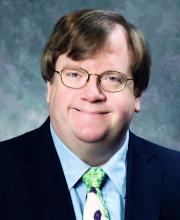The United States of America are not united. Politics have polarized the competing monologues and the policy making around vaccines, masks, children returning to school, what children are taught in school, and whether the federal government (or the National Football League) can or should create universal mandates enforcing one extreme of any of those policy disputes. Public health and health care have become so entangled in polarized politics that the role of science has often been pushed aside.
Polarization is not a novel event in the history of governments. The partition of India in 1947 divided most of its Hindu and Muslim inhabitants into separate countries, but that hasn’t stopped the recent resurgence of Hindu nationalism in India. The Thirty Years’ War in Europe sought to decide whether Catholics or Protestants would dominate Western Christianity. Those two sides decided in 1648 that coexistence was wiser than continuing into the abyss of mutual annihilation. Current conflicts between Israelis and Palestinians, between Shia and Sunni Arab states, between China and the Uyghurs, and within Sudan and Ethiopia together demonstrate that polarization to the point of genocide can occur regardless of religion, race, and nationality.
Abraham Lincoln, a lawyer in Illinois with a habit of losing elections, was nominated in 1858 to be the Republican nominee in the U.S. Senate race. His speech accepting the nomination spoke a truth that resonated across the nation and across time. It is known as the House Divided speech. He said: “A house divided against itself cannot stand. I believe this government cannot endure, permanently half slave and half free. I do not expect the Union to be dissolved – I do not expect the house to fall – but I do expect it will cease to be divided. It will become all one thing or all the other.”
The Republican Lincoln, supported by antislavery groups, lost that election to the Democrat Stephen A. Douglas, whose party espoused popular sovereignty and local decision-making about slavery. Lincoln’s acceptance speech propelled him 2 years later to be nominated for and elected President of the United States. Lincoln’s first inaugural address as the President of the United States on March 4, 1861, focused on the issue of division and secession. This time, Lincoln placed much more emphasis on preserving the Union. He specifically renounced any federal efforts to use force to abolish slavery in the states that permitted it. He declared: “I have no purpose, directly or indirectly, to interfere with the institution of slavery in the States where it exists. I believe I have no lawful right to do so, and I have no inclination to do so.”
President Lincoln’s approach might not meet muster in today’s cancel culture. He was facing a precariously divided nation not unlike the current day, so his speech contains insights and wisdom important for today. Lincoln saw government as “a majority held in restraint by constitutional checks and limitations.” I am loath to further quote out of context or paraphrase his masterful words. Go read the original, in its balanced entirety.
I have written previous columns about the importance of taking time to reflect on one’s life and one’s career. Reflection is both a wellness check and a moral compass check. Some call it mindfulness. I lean toward calling it thankfulness and gratitude. Hence, November is a convenient time for pediatricians if flu and respiratory syncytial virus seasons haven’t started.
The Gettysburg Address extols the virtue of dedication. Lincoln’s second inaugural address promotes mercy and forgiveness. His Farewell Address to Springfield in 1861 in a single paragraph captures grief, faith, and hope. Those speeches are my perennial favorites. But this year it is the two aforementioned addresses that must be mined for wisdom.
I advocate vaccine and mask mandates, but I am not enamored with the idea of President Biden using the unchecked power of the executive branch to promulgate a single federal regulation that overreaches into every moderate-size business nationwide. The 1861 inaugural address concurs. Lincoln’s prophecy that division will be solved when one side ultimately wins is not the model I seek. It hasn’t worked for gun control. It hasn’t worked for abortion as we approach the 50th anniversary of Roe v. Wade. The present 50+1 vote majority in the U.S. Senate does not have a mandate to overhaul society, especially when those majorities are transient. One should have the courage to seek change, but beware of creating large divisions with small majorities.
Facebook profits when you meditate in the echo chambers of large, outraged groups. Avoid that. Hebrew tradition has some reflection occurring in groups of two or three, rather than solo. Truth is revealed in community. Voltaire said: “Cherish those who seek the truth but beware of those who find it.” As a scientist, my experience is that humility, skepticism, and a dedication to finding truth have served me well for a lifetime.
Dr. Powell is a retired pediatric hospitalist and clinical ethics consultant living in St. Louis. Email him at pdnews@mdedge.com.


